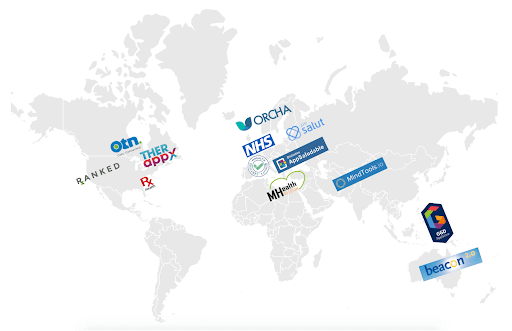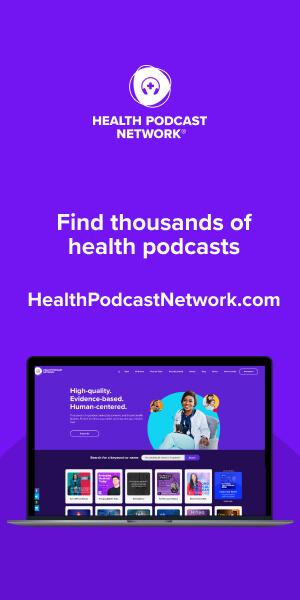San Mateo, CA ~ The 4 main barriers to adoption of Digital Tools by clinicians, and what is being done about them.
A few weeks ago, while attending the DTx West conference in California, I had the great pleasure of speaking with several industry leaders who have had a practice as clinicians in the past. They included doctors, pharmacists, nurses, and other health care professionals that have worked at the coal face of medicine. Some of them took part in a panel entitled “What is it going to take for Digital Therapeutics to succeed commercially?” One theme that emerged seems obvious: convince doctors to prescribe digital tools, especially digital therapeutics.
The ensuing conversation highlighted four main barriers that are all known to slow down clinician engagement. Those barriers were also cited by Dr. Eric Topol in his work with the NHS a couple months ago.
“The successful integration of any new technology or system into the workplace requires a highly engaged and appropriately trained workforce. There are known barriers to embrace technological changes in healthcare. These include lack of trust in new technologies, the precedent of poor previous experience with electronic health records, fear of the pace of change and the feeling of being unprepared to engage with new systems.”
~ Topol Review, 2018
To avoid confusion, let’s look at the definitions of the relevant terms more closely:
Definitions
- ‘Digital tools’ refer to any software embedded in a mobile application, a web platform (website) or a connected device (eg. smartwatch) created to be used by a patient in the context of his health.
- The term ‘Digital therapeutics’ (DTx) refers to a sub-category of digital tools that provide a medical intervention through clinically validated technologies to prevent, control, treat or diagnose a given medical condition.
- ‘Health and wellness apps’ are a sub-category of digital tools that do not fit into the definition of digital therapeutics.
Lack of confidence in digital tools is not new, nor surprising. Many clinicians are wary of the sharing of information between manufacturers of Digital Tools and third parties. Privacy concerns must be prioritized, especially in light of a very recent study published in the BMJ that showed that in a sample of 24 mobile apps available on Google Play, 78% shared data with third parties. As if that isn’t alarming enough, those third parties then, in turn, re-shared the information with “fourth parties” who are big enough (think Google, Facebook, Oracle, etc.) to receive large amounts of data from various sources that enable them to aggregate and re-identify user data.
As you may suspect, this study did not include any Digital Therapeutics (DTx) solutions. In order to be considered a digital therapeutic, in strong contrast with health and wellness apps, a digital therapeutic solution must adhere to core principles defined by the Digital Therapeutics Alliance and assessed by regulatory bodies such as the FDA. As a result, they seem much safer than health and wellness apps when it comes to security and confidentiality.
But the average clinician doesn’t know the difference between DTx and other digital tools, and that’s a problem according to Senior Executives who attended the DTx Event.
Groups from all over the world are helping clinicians increase knowledge about Digital Therapeutics.
Good news! Several initiatives have emerged in recent months to improve the situation.
While waiting for universities to change their curriculum in order to teach future clinicians about the use of technology in clinical settings, continuing education (CE) programs are being set up by clinicians who have advanced experience in this field. Also, some universities are starting to create post-graduate diplomas, such as Paris-Diderot in France. Will those programs succeed in creating “Digital Champions”, as stated recommended by many healthcare professionals, or will it bring the complete workforce to a minimal level of awareness and knowledge about technology? Only time will tell. One thing we do know is that 68% of doctors said in a recent survey that have discussed digital tools with at least one patient in the past year.
Another organization is relying on patient input to create awareness among professionals. This approach could prove promising, considering that some Digital Therapeutics are adopting a direct-to-consumer (DTC) approach. If you don’t know about the Ask Me About Digital Initiative, you should check it out and order your set of badges and consultation room stickers on their website.
On top of all those initiatives sit an ever increasing number of companies and associations that are creating Apps Libraries or Apps Formularies for both patients and providers. The map below illustrates some of the solutions available around the world country.

What’s next for Digital Therapeutics?
To harness the potential of Digital Therapeutics, we need to make sure that clinicians from all over the world are aware of these new therapeutic modalities and involved in their use by patients. As someone who teaches clinicians about the use of technologies in clinical setting, I cannot stress enough how much they are keen to learn, considering that a lot of their patients are already using Digital tools in the context of their health.
Learn more about DTx and Digital tools:
- Podcast with Megan Coder: Scaling Digital Therapeutics – The Opportunities and Challenges
- Digital Therapeutics Alliance
- DTx West 2019
- BMJ Article: Data sharing practices of medicines related apps and the mobile ecosystem: traffic, content, and network analysis
- Therappx: e-platform for Canada’s healthcare providers
- PWC Article: Digital therapeutics and connected care reshape the life sciences industry
- Medical Futurist: Ask Me About Digital – Everything You Need To Know





